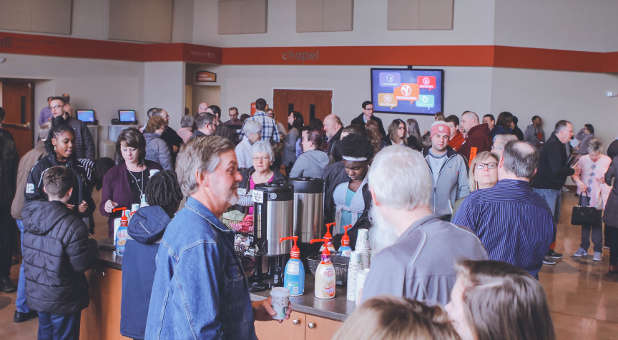
The trends are fascinating.
About 50 years ago, many congregations in the United States began adopting the "multi" model. This first phase of the multi-model was primarily multiple worship services on Sunday morning. To be certain, it was controversial. You heard cries of, "We've never done it that way before" and "You will not be able to know other people in the church."
The controversies quieted for the most part. Then the multi-site model began to gain momentum about two decades ago. Again, similar objections were raised. I was an early adopter of this model as a pastor in 1995, and I experienced firsthand the challenges of leading such a congregation to start a second site for our church.
The multi-venue model is not new, but it is gaining momentum. I define multi-venue as worship gatherings at the same site beyond the Sunday morning services or beyond the same worship center or sanctuary. For example, a church may start a service for college students on Tuesday evening. Or it may have a Korean service meeting in another part of the church facilities concurrent with an English-speaking service.
Though the model is not new, there seems to be a perfect storm accelerating the growth of the multi-venue approach. Here are six components moving the model forward.
1. Multiplication is a proven model. The New Testament is clear about multiplication. The purpose of Paul's missionary journeys was to take the gospel and to start or multiply churches. We have seen the efficacy of the multiplication model in groups, Sunday school classes, ministries, church plants and new church sites.
2. Church leaders realize more than ever how underutilized their church facilities are. As a consequence, these leaders are looking at opportunities to start new services, for example, in times and places they did not consider in earlier years. I worked with one church that welcomed a Chinese congregation on Sunday afternoons and utilized its fellowship hall for a more contemporary service concurrent with other services on Sunday morning.
3. Many churches do not have facilities. They often have to pay for expensive lease space. Or they have to move from school to school as they grow, or as the schools decide the church can no longer rent their facilities on Sunday. These churches would love to be in a place with a greater sense of security and permanence. They are often finding the perfect solution by sharing a facility with another church.
4. Non-Sunday worship services will increase in number. Many church leaders are taking the leap and leading their congregations to offer at least one service other than Sunday morning. This move allows the church to reach more people without building or buying expensive facilities.
5. Multi-venue is a great way to reach ethnic and language groups. These congregations are able to share facilities instead of the expensive path of owning or leasing multiple facilities.
6. There will continue to be challenges for many churches that want to expand their facilities. Those challenges may come as a result of having insufficient acreage to build. Or they may be the result of a municipality or other approval authority denying a church permission to build. I have been involved in several legal consultations where the latter took place. Multi-venue services become a solution to this challenge as well.
For certain, multi-venue services are not new. They have been around for quite a while. But, for the reasons noted in this article, we will see a rapid expansion of this approach in the years ahead. Let me hear your thoughts on this development. ![]()
Thom S. Rainer is the founder and CEO of Church Answers, an online community and resource for church leaders. Prior to founding Church Answers, Rainer served as president and CEO of LifeWay Christian Resources. Before coming to LifeWay, he served at The Southern Baptist Theological Seminary for 12 years, where he was the founding dean of the Billy Graham School of Missions and Evangelism.
For the original article, visit thomrainer.com.
Get Spirit-filled content delivered right to your inbox! Click here to subscribe to our newsletter.
Dr. Mark Rutland's
National Institute of Christian Leadership (NICL)
The NICL is one of the top leadership training programs in the U.S. taught by Dr. Mark Rutland. If you're the type of leader that likes to have total control over every aspect of your ministry and your future success, the NICL is right for you!
FREE NICL MINI-COURSE - Enroll for 3-hours of training from Dr. Rutland's full leadership course. Experience the NICL and decide if this training is right for you and your team.
Do you feel stuck? Do you feel like you’re not growing? Do you need help from an expert in leadership? There is no other leadership training like the NICL. Gain the leadership skills and confidence you need to lead your church, business or ministry. Get ready to accomplish all of your God-given dreams. CLICK HERE for NICL training dates and details.The NICL Online is an option for any leader with time or schedule constraints. It's also for leaders who want to expedite their training to receive advanced standing for Master Level credit hours. Work through Dr. Rutland's full training from the comfort of your home or ministry at your pace. Learn more about NICL Online. Learn more about NICL Online.


